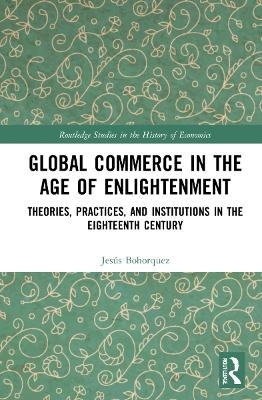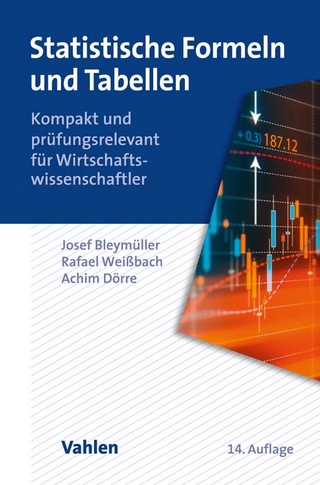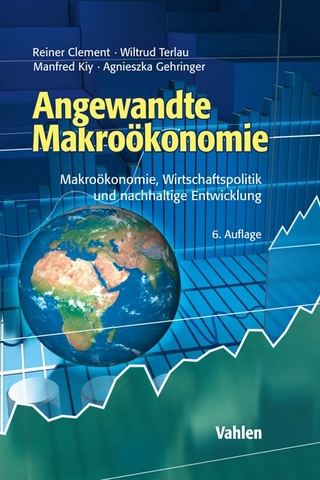
Global Commerce in the Age of Enlightenment
Routledge (Verlag)
978-1-032-31073-2 (ISBN)
Combining contextual, institutional, and global perspectives, this book evaluates the impact of international trade on eighteenth-century economic thought. It meticulously delineates how economic ideas and institutions flowed between North and South Europe and across the Indian and Atlantic Oceans during the Age of Enlightenment.
Global Commerce in the Age of Enlightenment carefully explores contemporary debates about economic institutions, which were a crucial element in the race for controlling international trade. Eighteenth-century thinkers devoted much attention to the relative merits of existing institutions, such as free ports, grasped the dangers of economic dependence, and appraised emerging conceptions of property rights. The author draws on an impressive range of sources, including pamphlets and travel accounts, and work from lesser-known figures such as Pierre Poivre and Ange Goudar.
This volume will be valuable reading for advanced students and researchers of the history of economic thought, economic history, political economy, the history of ideas, and global history.
J. Bohorquez is a researcher at the Instituto de Ciencias Sociais, University of Lisbon, Portugal. He was a fellow at the Freiburg Institute for Advanced Studies and the Weatherhead Center for International Affairs at Harvard University.
Introduction: On global commerce: topoi, utopias, and the existential production of knowledge. Part I: “The granary of the universe” Travelogues, observations, evidence, and a global history of property. 1. Pierre Poivre: A microglobal life. 2. Eighteenth-century travel accounts: Platforms for economic observations. 3. Feudal Laws: Liberties for a few. 4. An empirical turn: Evidence and the attack on the economists. Chapter 5. Property rights: A global history. Part II: “A universal warehouse of workforce” Re-industrialisation, delocalisation, de-urbanisation, and the propagation of economic maxims. 6. Ange Goudar: Does the republic of economists need transgressive authors?. 7. The will to know: The praxis of economic maxims. 8. The will to write: North and South Europe in transnational perspective. 9. Industry’s geometry and geography. 10. Materialising ideas: A chamber of Agriculture. Part III: “A universal intercourse of traffic as is desired” Free ports, fairs, and institutional evolution in a global perspective. 11. Free ports: the idol of all economists. 12. Lasting and unlasting markets: From Medieval fairs to free ports. 13. Institutional diversity: Free ports, the Navigation Act, and the Drawback system. 14. A Mediterranean silk road: Venice, Genoa, and Piedmont. 15. Tyre and Carthage: Failed projects and new glocal fairs. Conclusion. Bibliography.
| Erscheinungsdatum | 05.07.2022 |
|---|---|
| Reihe/Serie | Routledge Studies in the History of Economics |
| Zusatzinfo | 1 Tables, black and white; 10 Line drawings, black and white; 4 Halftones, black and white; 14 Illustrations, black and white |
| Verlagsort | London |
| Sprache | englisch |
| Maße | 156 x 234 mm |
| Gewicht | 440 g |
| Themenwelt | Wirtschaft ► Volkswirtschaftslehre ► Makroökonomie |
| ISBN-10 | 1-032-31073-1 / 1032310731 |
| ISBN-13 | 978-1-032-31073-2 / 9781032310732 |
| Zustand | Neuware |
| Informationen gemäß Produktsicherheitsverordnung (GPSR) | |
| Haben Sie eine Frage zum Produkt? |
aus dem Bereich


